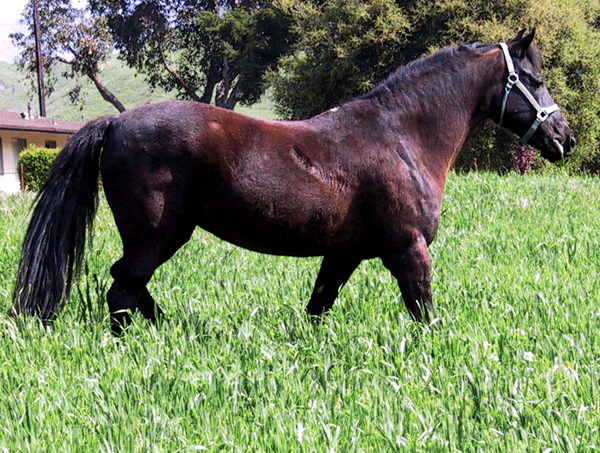For those of us involved in any animal, it’s hard to watch them age. Their health, care and attention needs change. This is especially true of our larger 4-legged family, our horses. From youngsters to late teens, we get to love and interact with our spry (and sometimes spunky) horses. Often, they are usable into their twenties. It seems to happen overnight when we suddenly realize the look in their eye isn’t quite as bright, the coat is a bit dull and their top line isn’t the same. It’s time to slow down and change the way we care for them. Does it mean we stop using them? Absolutely not. Let’s look at the steps we can take to keep our older equines happy and healthy.

Unlike people, we can’t provide our older horses with false teeth. Perhaps there is hope down the road, but for now, being conscientious of the change in which they process food is a critical element to keeping them healthy. As horses age, it becomes more difficult to properly chew their food. If you watch an older horse eat, you’ll often see food dropping out of their mouth. There are a few ways to ensure your older horse gets enough nutrition and is able to thoroughly digest the food. Forage is a critical element to any horse’s diet. It keeps the gut moving and provides fiber. Providing an easy to digest hay, such as Orchard, your older horse can still chew and intake the necessary forage to keep a healthy gut. To make it easier, you can provide the am and pm meals with this hay that has been soaked.
Not only does this help make it easier to process but it also helps remove excess sugars, remove excess dust, and give added moisture to your horse’s gut. Don’t forget to add a supplement designed for older horses. Because their digestive system changes, so does their ability to absorb important vitamins and minerals. There are several great supplements designed for the aging horse. These supplements provide the critical ingredients they may not get from forage feed. An important point to remember; make sure you soak any supplements. Moisture is very important but so is digestibility. Because the chewing patterns change, your older horse may be more susceptible to Choke which is caused by food getting stuck in the esophagus. By taking the above food changes into consideration, your horse should still be able to maintain a healthy diet and a mobile gut without requiring the equine version of false teeth. I wonder if that would be covered by equine insurance.
Another important step in the care of the older horse is grooming. Keeping your older horse clean and groomed does more than just make them feel like they’re still loved; it helps minimize any fungus or irritation and any skin abnormalities. Daily brushing and grooming helps to relax your horse. Consider this the relaxing spa message for your horse, only less expensive. It’s important to remember to use a soft brush. As horses age, their skin becomes more sensitive. While grooming your horse, you can take the opportunity to watch for any abnormalities or strange growths. You can also watch the change in their coat and muscle tone. These are critical elements that help with overall monitoring of the health of your horse. Don’t forget to wipe down their eyes and inside their ears. If you want to enhance their relaxation, you can add a few drops of lavender to the brush and put on some soothing music. Oh wait, that is for the caretaker. If you wash your horse, be sure to use luke warm water. Ice cold water is a shock to the system. Don’t forget the feet. As the horse ages, it’s easier to build up more fungus in the feet, making them more susceptible to thrush.
Open air and exercise are other essentials to supporting the health of your older horse. Keeping them in an area where there is an open breeze helps them from breathing excess dust and particles. Exercise is critical. As the horse ages, arthritis and excessive stiffness sets in. By being in an open area with lots of room to move around, you’ll find they don’t get as stiff as they would by standing in a smaller stall. Regarding exercise, I don’t mean riding in any races, steeple chases, or endurance events but light rides and long walks not only help with movement, but they also help the mind. If given the opportunity, you’d be surprised how many older horses can still kick up their heels when they have a chance.
In the end, what does this come down to? By taking the time to ensure your horse receives proper nutritional needs, maintain grooming and exercise, will allow your senior horse to continue to thrive. All too often, the older horse gets put aside for a younger one. If they have been used and received the love and attention from an owner, the lack of this attention takes its toll. Even if you can’t use them like you used to, it’s worth spending the time to let them know they are still going to be taken care of. And when you continue to care for your horse as he/she ages, you’ll see the sparkle in their eye, even when their coat becomes dull and they can’t move like they used to.
By Kathy Klossner – Kathy has been involved with horses before she could walk. Having owned several horses through the years and showing in both English and Western Pleasure classes, Kathy now dedicates her time to helping horse rescue organizations in getting more exposure on the Internet for funding and recruiting volunteers. She is also involved with several Wild Mustang horse advocate groups in keeping our wild horses free. To view more photos of wild mustangs visit: Waterdancerphotos.com
